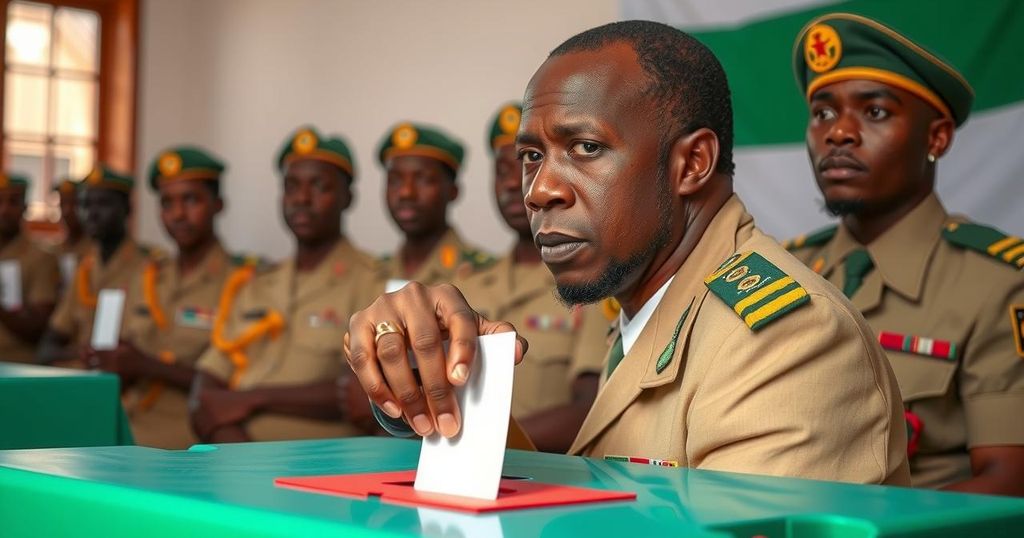World news
” MASRA, 2024 ELECTIONS, AFRICA, AP, CHAD, DEBY, DEBY ITNO, DEMOCRACY, DJAMENA, ELECTIONS, GOVERNANCE, GOVERNMENT, ID, IDRISS DEBY ITNO, MAHA, MAHAMAT IDRISS DEBY, MAHAMAT ISSA HISSEIN, MOROCCO, N ’ DJAMENA, NATIONAL ASSEMBLY, SAHEL, SU, SUCCES MASRA, TRANSFORMERS, VOTER TURNOUT
David O'Sullivan
0 Comments
Chad Elections Mark Low Turnout Amid Opposition Boycott as Democracy Hangs in Balance
Chad’s parliamentary elections faced a significant opposition boycott, resulting in low voter turnout, particularly in N’Djamena. The elections, marking the end of military rule under Mahamat Idriss Deby, aimed to initiate decentralization but raised credibility concerns, reflecting the challenges of establishing a functioning democracy in the country. Stakes are high as Chad navigates security issues and seeks to solidify its democratic future.
Chad held parliamentary and regional elections on Sunday, marking an end to three years of military rule, yet the opposition largely boycotted the voting process due to concerns over the credibility of the electoral oversight. The election, the first in over a decade, follows a controversial presidential election won by junta leader Mahamat Idriss Deby, which was criticized amid allegations of irregularities. Amid low voter turnout, particularly in the capital N’Djamena, the elections aimed to establish a new decentralized governance system as articulated by Deby. However, discontent among the opposition parties, including the prominent Transformers party, raised concerns about the legitimacy of the electoral process, prompting many to abstain from voting. With critical national security issues and challenging diplomatic relations on the horizon, the stakes for this election were undeniably high as Chad seeks to stabilize and progress towards democratic governance.
Chad, an oil-exporting country with a population of approximately 18 million, has experienced prolonged military rule following the death of former President Idriss Deby Itno. His son, Mahamat Idriss Deby, took power in 2021 and pledged a return to democracy after a transitional period. The current elections are unprecedented in that they signify a potential shift towards representative governance after decades of unfree transitions, yet opposition boycott raises questions regarding the principles of democracy and legitimacy of the voting process.
In conclusion, the recent parliamentary elections in Chad represent a pivotal moment as the country transitions from military rule to a new governance model. The significant opposition boycott and low voter turnout reflect deep-seated skepticism regarding the electoral process and the government’s commitment to a credible democratic transition. Amidst ongoing security challenges, the future of Chad’s political landscape remains uncertain, with critical questions about the sustainability of a true democratic process still to be addressed.
Original Source: apnews.com




Post Comment